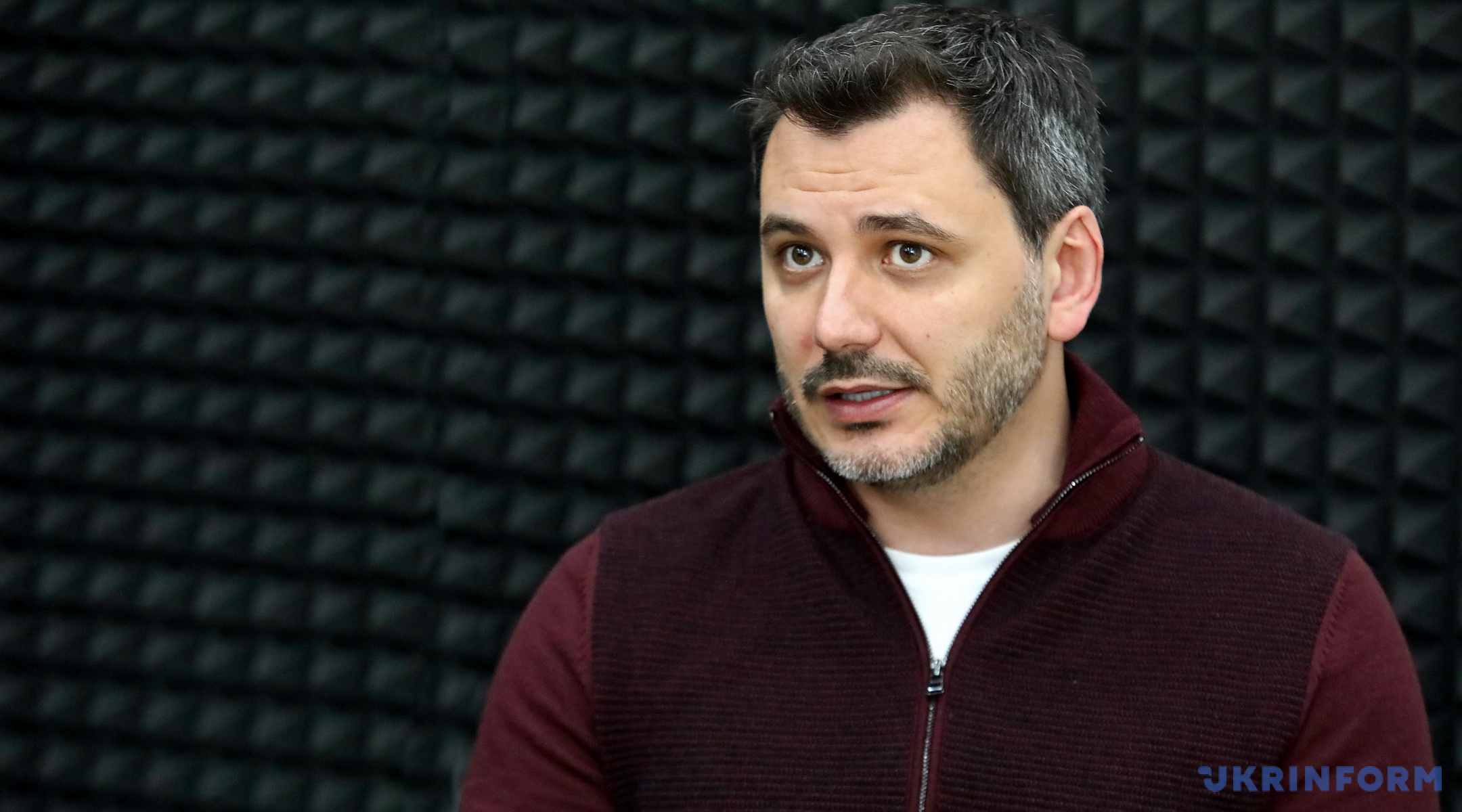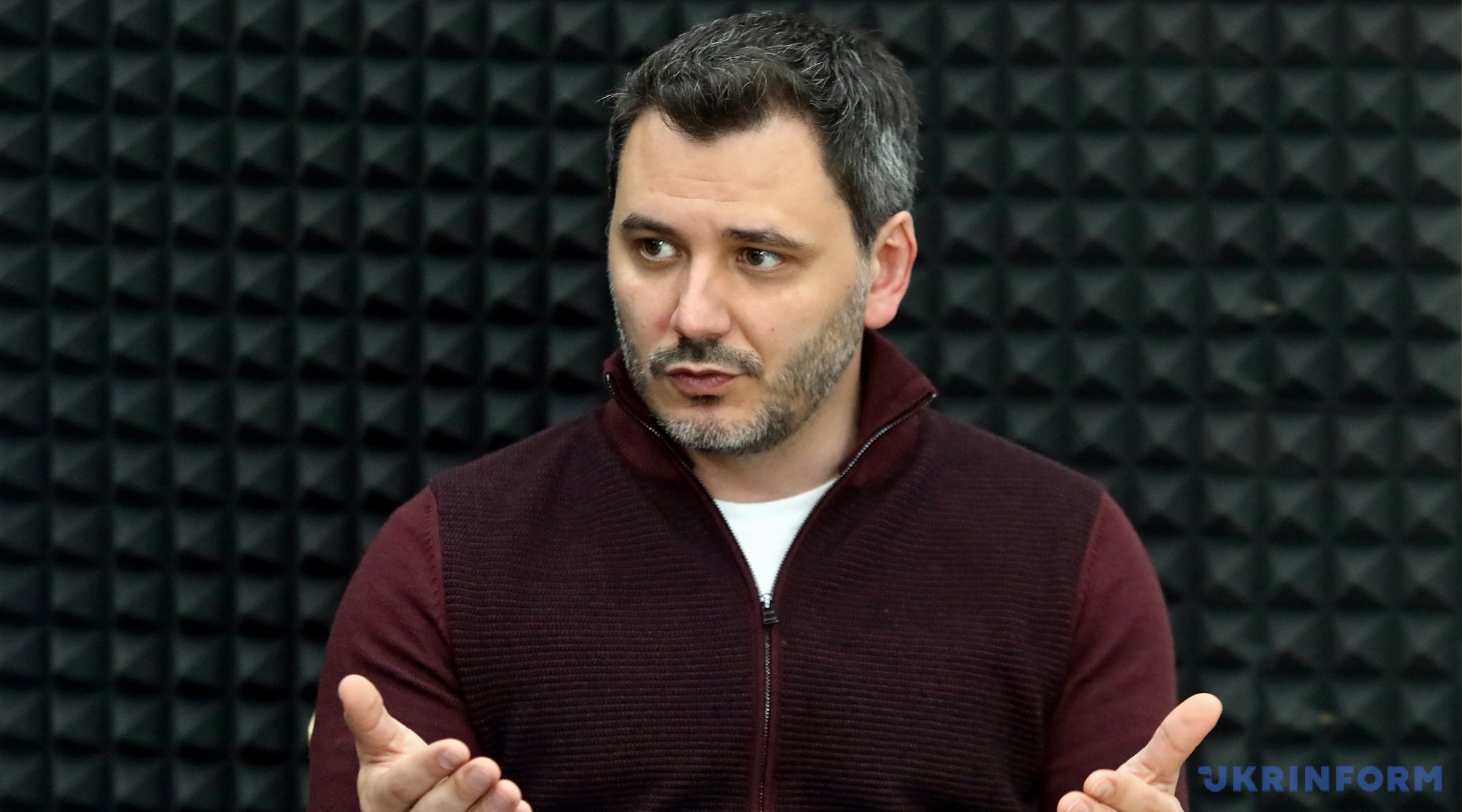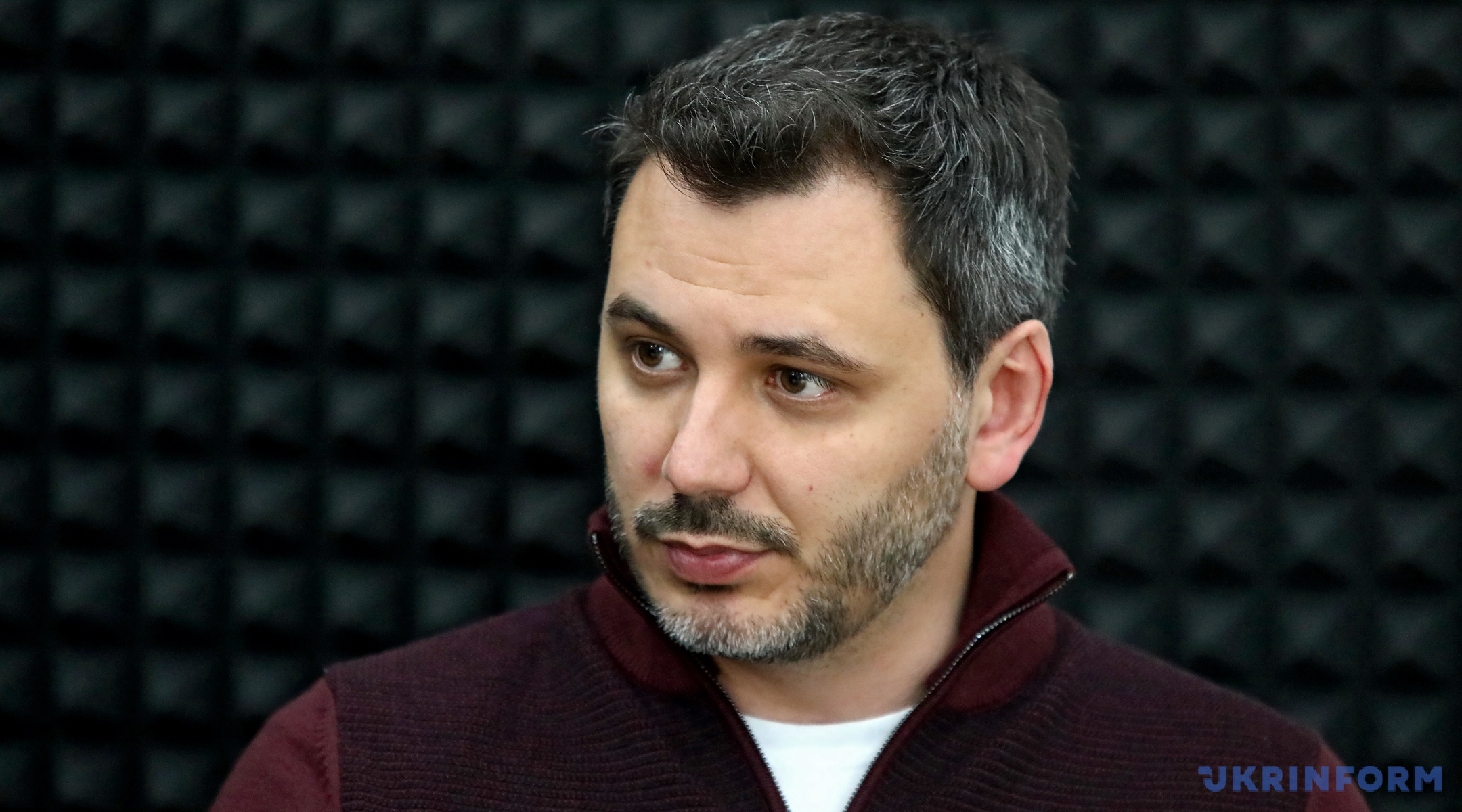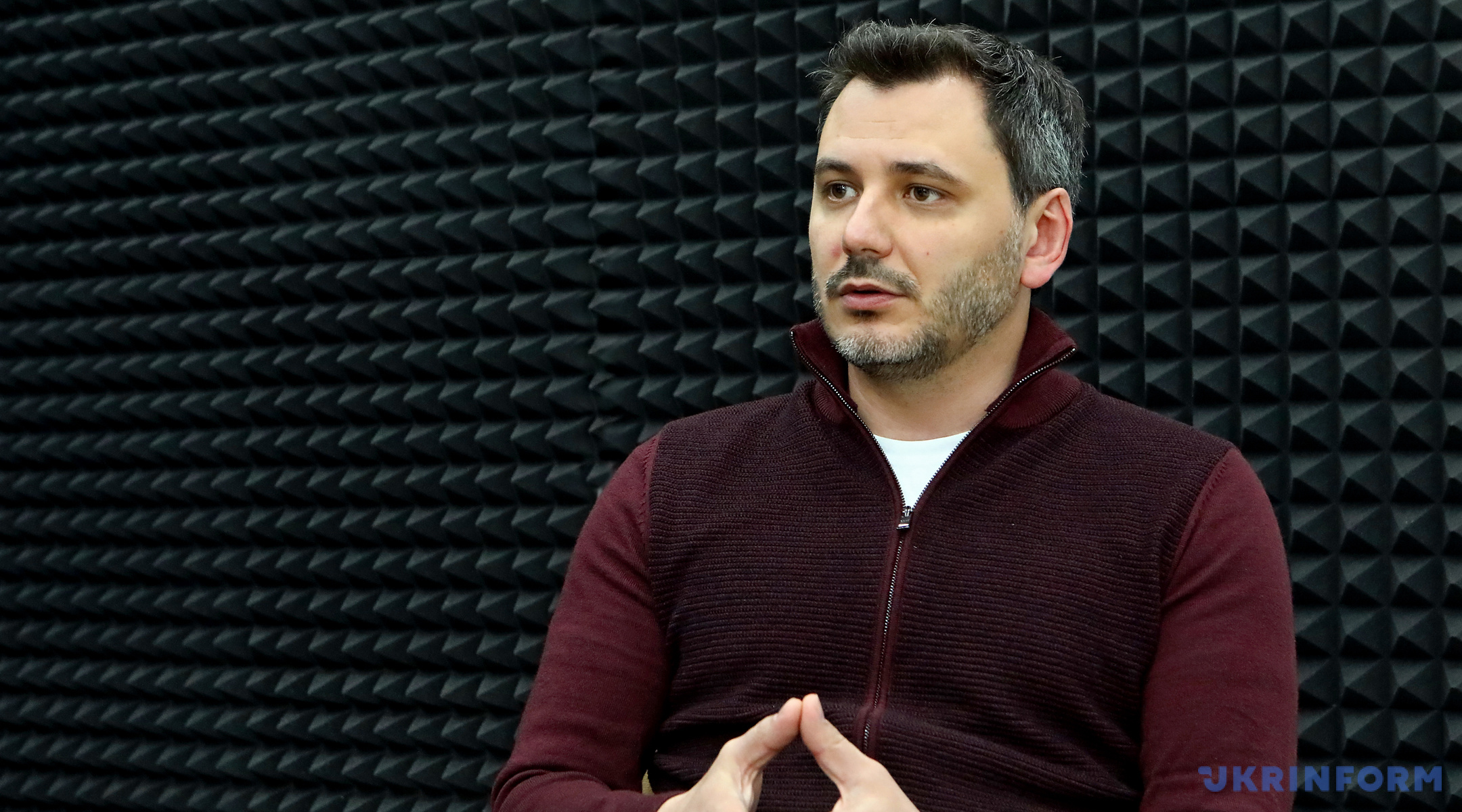Over the past months and weeks, many important events have taken place in Ukraine and around the world that in one way or another relate to the war, our victory, and the foreseeable future after it. Most of these events are encouraging, giving us new incentives to continue our daily exhausting struggle, but sometimes it happens that, as they say, the news "almost makes you cuckoo."
Ukrinform spoke with Deputy Chairman of the Verkhovna Rada Committee on National Security, Defense and Intelligence, Head of the Ukrainian delegation to the NATO Parliamentary Assembly Yehor Chernev about the consolidation of Ukrainian society, Bezuhla's "hit" on Zaluzhnyi, which plays into the hands of the enemy, the situation on the diplomatic front, what we should prepare for, our Euro-Atlantic prospects, the factor of Hungarian Prime Minister Orban's malignity and what to do about it, the Ramstein format, weapons, and what the increase in the military budget of the aggressor country, Russia, could potentially lead to in 2024.
By the way, these days Mr. Chernev is working in the United States, where he and his fellow deputies went to convince local communities to continue to help Ukraine. Each member of the Ukrainian delegation was assigned a staff member to work with.
Our interlocutor is currently in the state of Ohio, in the city of Columbus.
- On November 22, the European Parliament adopted a resolution by a majority vote that essentially launched the EU reform. Among the key provisions of the document is "expanding the range of decisions to be taken by a qualified majority rather than unanimity." Simply put, this means rejecting consensus in the adoption of important issues, in particular, in order to curb Hungary's attempts to harm both Brussels and Kyiv. So, as we can see, on the one hand, the EU is trying to reform. On the other hand... The EU is gradually moving to the right. Elections in the Netherlands, Slovakia... How dangerous is this? What are the risks for the European Union itself, and especially for the warring Ukraine, which aspires to become an EU member? What should we do in this situation?
- Europe's rightward shift is a reaction of societies to ill-conceived migration and multicultural policies. Conservative views that go hand in hand with isolationism are becoming more and more popular.
This does not mean anything good for Ukraine, because right-wing parties are mostly more supportive of Russia than Ukraine and are not very willing to help us. Although there are exceptions, for example, in Italy or Poland.
We cannot prevent this process of Europe's rightward shift, but there are things we can do.
First, we must finally move to a normal European political system, where parties are divided into right and left, and the voice of right-wing Ukraine must also be heard in Europe and America. But we definitely do not need to flirt with the far right or neo-Nazis.
Secondly, we need to establish ties and cooperation with right-wing European parties, so that they get information and narratives not only from the Russian side, but also from ours.

- European Council President Charles Michel recently said that in 2030 the EU should be ready for enlargement. Is it realistic for Ukraine to achieve this goal by 2030?
- Everything in the world is realistic if there is political will. Already today, Ukraine is more in line with European standards than some countries were when they joined the EU.
- What about NATO? What are our prospects here? Should we expect positive signals from the upcoming summit in Washington in light of Mr. Stoltenberg's "fresh" statements? How are we preparing for it? Does he have influential opponents in NATO on the Ukrainian issue, and who are they?
- The story with NATO is the same, but a bit more complicated.
First, there is much more global geopolitics involved in this issue. NATO is, in fact, a continuation of the United States, and their decision is decisive. And they will make their decisions based on global calculations and their willingness or unwillingness to take Russia's position into account.
The second issue is more technical. NATO will not be able to accept us as a member until the war is over and the threat of the Alliance being drawn into the conflict is over.
Other issues, such as our reforms, are important but not decisive.
- Both in the context of the EU and NATO... What should we do with the Orban factor? Should we just wait until his veto power is taken away?
- Orban is an experienced politician who clearly knows the line that cannot be crossed. He acts within the framework within which he is allowed and tries to make the most of it.
But as soon as it touches on issues of principle for the United States or Germany, Orban immediately backs down.
He will definitely not quarrel with them, and therefore the Orban factor can be quickly leveled if necessary.
- In 2024, the Russian Federation will spend almost a third of its budget on the army, which is more than 10 trillion rubles, which is 70% more than in 2023. What does this mean and what can it lead to?
- This will lead to the depletion of the Russian economy, inflation, and the degradation of Russia. The development of the military-industrial complex at the expense of value-added industries is a path to a deep crisis. Moreover, the products of the Russian military-industrial complex are not for sale, but are immediately utilized in Ukrainian fields.
But it is true that Russia may have a significant firepower advantage over us for some time, and we have to survive this period before their crisis deepens.
And let us not be misled by Russia's GDP growth figures. This growth is ensured by the production of weapons, which is not profitable, and the oil revenues that Russia receives are burned in the form of their tanks.
- Mr. Yegor, how would you assess the work of the Ramstein format? Have there been any changes over the year and a half of its work? Does Ukraine get everything it asks for? What weapons can our country provide for itself today?
- Ramstein is a well-established mechanism, an operational headquarters for helping Ukraine.
Fundamental issues, including the new nomenclature, are usually decided at a higher level, and Ramstein only implements previous political agreements.
We do not always get everything we ask for, and we do not always receive even the agreed assistance on time. That is why we have set a course to gradually provide ourselves with the most important components of our defense - ammunition and drones.

- What else does our country need besides weapons to fight the aggressor more effectively? Perhaps we need to finally unite the elites and form a government of national unity, like in Israel? Is this realistic?
- Today we lack a new consolidation of society around the issue of defense. Unfortunately, today some people are relaxed, some are tired, some are afraid.
But we will not be able to sit back. We have little choice: either to defend our land, or we will face occupation, torture, humiliation, and death.
The Holodomor, let me remind you, occurred because society was tired of internal strife, civil war, and the war for independence, and many thought that it was possible to reach an agreement with the Bolsheviks, who would ensure order. And they did - in the cemetery.
- The Verkhovna Rada is preparing a bill to amend the process of mobilization and demobilization of the military. When does the Parliament plan to adopt the document and what innovations can we expect?
- All issues related to mobilization, demobilization and other military matters are decided by the General Staff. MPs only fulfill the requests of the military and provide them with a legislative and legal framework.
As soon as the final document is agreed with the military, it will be submitted to the session hall and voted on. This should happen in the near future.
- What is happening on the diplomatic front today? How do we see the situation - optimistic, cautiously optimistic, or, on the contrary, are there reasons for concern?
- The situation has changed in that emotions have disappeared from our allies and pure pragmatism has remained. Everyone agrees that Ukraine should not lose. But there are questions about how to ensure its victory.
Therefore, our task is to get our partners to want us to win. We will get help to survive, but this is not enough. We need to defeat the eternal enemy.

- Is there really "war fatigue" in Ukraine's partner countries, and how justified are the fears of, let's say, underhanded contacts regarding the start of negotiations between Ukraine and Russia? I ask because from time to time such information leaks out...
- Everyone already understands that this is not about Ukraine at all, but about a big geopolitical game being played by Russia and its allies. This understanding has especially come to our partners after the events in Israel.
Therefore, there is no fatigue from Ukraine and there can be no fatigue anymore. But there is fatigue from the general situation of uncertainty, instability and unpredictability. And some people want to find a way out of it, including through a compromise with Russia.
- We know that Ukraine will win. But does everyone in Europe and the U.S. believe this? What is the ultimate goal or outcome of the Russian-Ukrainian war that our partners see for themselves? Is it a total defeat of Russia, which will lead to some processes in Russia itself, disintegration or a change of government? Or are they talking about some kind of peace, just to stop shooting? Other options? What would they like to see as a result?
- Most of our Western partners are not interested in Russia's defeat. They are afraid that Russia's defeat and disintegration will break the entire geopolitical structure in Eurasia, a power vacuum will arise in a large part of it, and nuclear weapons may fall into the hands of terrorists or fraudsters.
In turn, we explain that without Russia's defeat, it will be impossible to create a reliable and effective system of European and global security. After all, Russia much more often acts not as a stabilizer of problems, but as a provocateur.
We have a group of allies in the West who support us in this. And we are working to increase their number.
- "We will be with Ukraine to the end, we will help as much as necessary..." We often hear these beautiful slogans from our partners, but what is really behind it? Because the time may come when it is "not necessary".
- This is a signal to Russia that it will not be allowed to achieve the goals it has set for itself. This does not mean that we will be helped to win, it means that Russia will not be allowed to win. No less, but no more for now.
- What do the processes inside the United States mean? What does Ukraine need to do to continue support? What good and not so good prospects should we prepare for? Is there a risk that the amount of aid will be reduced?
- For the next year, we will still receive aid from the US. But we also need to think about the longer term, because it is not known how long this war will last.
It is possible that after the US elections, regardless of their outcome, the main burden of assistance to Ukraine will be shifted to Europe.
But we realize that Europe is already having a hard time, so we will be doing our best to strengthen our work in the United States.
For example, today our parliamentary delegation traveled to the states to meet with local communities, authorities, opinion leaders and media representatives. We are explaining to them why Ukraine's victory is vital to the interests of the United States and every American.
- If Trump wins, will it be a disaster? He is publicly talking about the need to seek a compromise with Putin. And this compromise can only come at the cost of Ukraine. What do you think?
- No one knows what to expect from Trump. But along with his ambiguous rhetoric, it was Trump who first provided us with American weapons, and "Trumpist" and Speaker of the House Mike Johnson today unequivocally supports the provision of assistance to Ukraine.
So, as a result of Trump's victory, we can expect both disappointing news and, on the contrary, a sharp increase in support for Ukraine. We'll see in time. For now, we are working to ensure that we have support in both parties.

- And a little bit about the domestic political situation... No sooner had we moved on from discussing Farion than Bezuhla fell on our heads. I understand that Ms. Mariana is your colleague in the faction and in the committee, but why make such attacks on the head of the Zaluzhnyi Party? Isn't she just playing along with the enemy, who is constantly spreading the message about the alleged conflict between the president and the Chief of Staff? How did you personally, your colleagues, and the party as a whole react to all this?
- All the problems voiced by Mariana Bezuhla are not new, and we hear them regularly from the military themselves, their families and experts.
But the way Mariana does it minimizes the importance of the issues that need to be addressed.
The idea that the problems of injustice and incompetence that exist, unfortunately, in the army need to be addressed is discredited by this quarrel.
And this is a very serious concern, because as a result, the problems will remain, they will be mothballed, and our country's defense capability will suffer.
In addition, such a public format of settling relations splits society and gives our enemy the opportunity to conduct his information special operations.
Therefore, I believe that this public quarrel should be stopped, and all problems in the army should be solved in offices, away from the ears of the enemy.
Myroslav Liskovych. Kyiv
